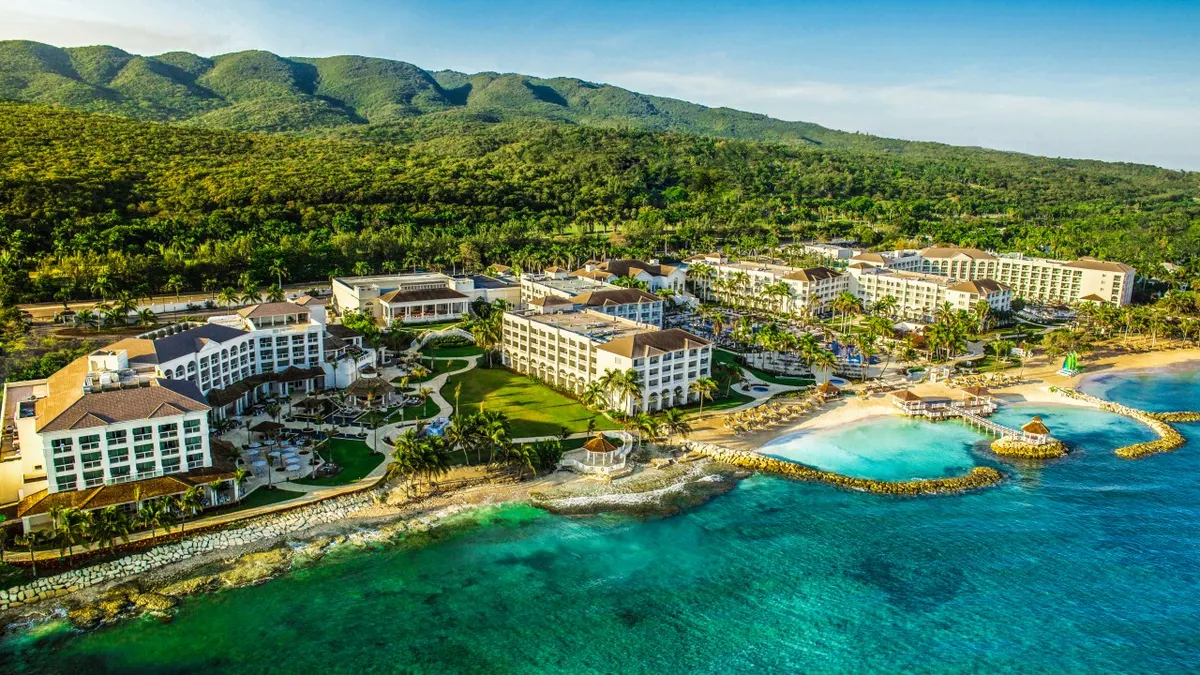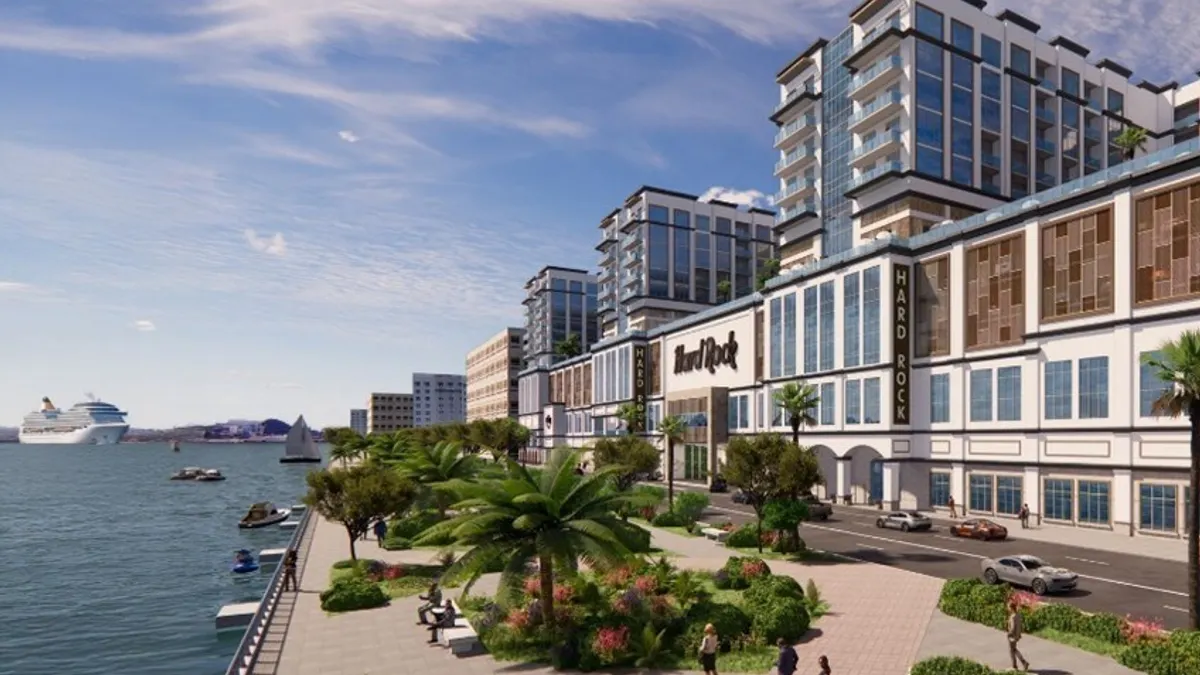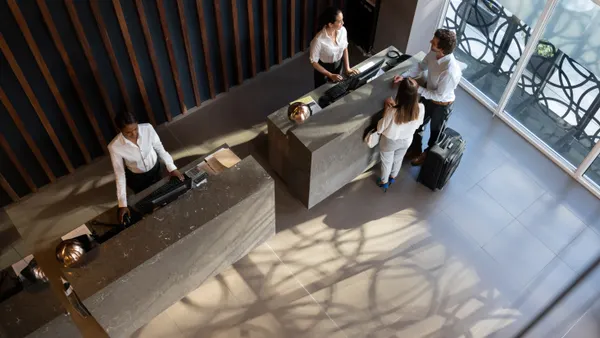Dive Brief:
- In the first half of 2025, the global travel, leisure and hospitality sector saw $10.8 billion in mergers and acquisitions activity, a 17.3% year-over-year increase in deal value, according to a report from professional services firm KPMG. The number of deals (368), however, declined 18.8% year over year, KPMG found.
- The divergence signals that travel, leisure and hospitality deal-makers are prioritizing quality over quantity, particularly “focusing on high-conviction bets” in areas like luxury travel and AI-driven hospitality, according to KPMG. In H1, the sector’s largest transaction was Hyatt’s $2.6 billion acquisition of Playa Hotels & Resorts.
- As deal-makers continue to navigate “a complex environment shaped by evolving consumer preferences, geopolitical risk, and interest rate uncertainty,” they will likely double down on AI and robotics to address labor shortages and enhance the customer experience while also remaining bullish on the rapidly expanding luxury segment, KPMG forecast.
Dive Insight:
For the hospitality and leisure sector, specifically, deal value rose 15.9% year over year in H1, while deal volume fell 24%, pointing to fewer, but larger, deals, according to KPMG.
Beyond Hyatt’s Playa acquisition, notable hospitality deals in the half included Ryman Hospitality Properties’ $865 million acquisition of JW Marriott Phoenix Desert Ridge Resort & Spa. Additionally, Marriott International acquired the CitizenM hotel brand for $355 million.
Three key factors are influencing deal strategies in the travel, leisure and hospitality sector: the digital transformation of guest experiences, the rise of experiential and luxury travel and the consolidation of gaming and online travel agency markets, according to the report.
Following Marriott’s purchase of the tech-forward CitizenM brand, CFO Leeny Oberg told Hotel Dive the deal aligns with Marriott’s strategy to offer guests a full range of experiences, price points and locations.
Looking ahead, hospitality deal-makers will focus on technology opportunities to address labor shortages and enhance the customer experience, according to KPMG. Additionally, the luxury segment will be a focus area, as it is expected to grow 8.4% compound annually through 2033, the report detailed.
According to JLL’s H1 2025 U.S. Hotel Investment Trends report, the luxury segment will be a standout opportunity for U.S. hotel investors in the back half of the year as higher-tier properties outperform their lower-tier counterparts.
Domestically, private equity-sponsored hospitality deals declined 85% year over year in H1 amid high borrowing costs, President Donald Trump’s tariff policy shifts and worsening global travel sentiment, PwC reported in June.












